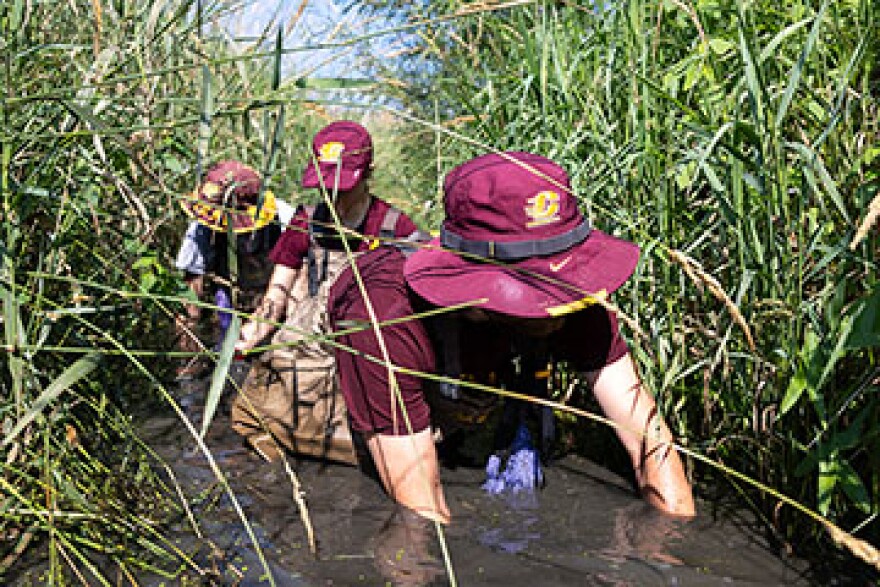Below is a transcript of our conversation with CMU student Aaron Vlasak:
David Nicholas:
I'm David Nicholas and this is Central Focus, a weekly look at research activity and innovative work from Central Michigan University students and faculty. Aaron Vlasak, CMU student from Midland, says he's always enjoyed playing in the mud. Now working on his master’s in biology, he's looking for muscles and mollusks in a really big area with lots of mud updating information for the first time in 40 years…
Aaron Vlasak:
It included all the tributaries to and the Tittabawassee River itself, so it really covered a large spatial area and now mostly sites no one's been to since that study was published. And so, we're saying it's an update of 40 years because nothing has been published from these sites in 40 years until I went there.
DN:
Were you able to get to all of those sites that they (they) mentioned in that original study?
AV:
Yes, I was. They had 28 sites where they found mussels that they reported the locations. I was able to revisit all of those sites and then they had an additional set of sites where they said they went to 50 in total. And so, the difference there is ones where they didn't find live mussels and so I assume some of the extra sites I went to because I ended up going to like probably 80 sites. I'm guessing there was some overlap, but we don't know. And so, there's potential I found muscles at sites where they hadn't in the past.
DN:
Those that you were studying, are they considered under that banner of invasive species or a different classification?
AV:
Nope, they are a different classification. These are our native freshwater mussels. So, there's 43 native species in Michigan, and I was focusing on these species, their family name is unionidae and so that's what we call them as scientists. But they are native and almost every time you talk to someone about muscles, the first thing they think of is, of course, the zebra mussels and the quagga mussels, invasive mussels, but these are good. You want these in your river.
DN:
Overall, then, how would you sum up the key findings that you got from the research that you did?
AV:
It seemed like most of their sites where they found muscles were in like the larger rivers, and for my extra sites I went to a lot of tiny creeks and even like drains like county drains. So basically, it looks like a side of the road. There's a little tiny bit of water, they didn't have any sites like that, but I decided to check these out. And I ended up finding tons of mussels, even a threatened species in those spots. So, I think a really key finding is just that there's mussels in more places than we thought.
DN:
Did it raise any questions? Something more that you might want to investigate yourself?
AV:
I think a study like this should be done everywhere really. I mean, I (I) showed that in one watershed that these tiny drains are holding mussels, but that's just one example. I think that should be expanded, you know, anywhere where there's mussels in the large rivers, there's potential for them to be in anything that's connected. So, I think that this needs to be explored.
DN:
Perhaps sooner than 40 years. What maybe the reasonable time frame to look at for studies like this? Every so how often?
AV:
That's a great question. That's actually going to be part of my thesis. I've been doing a survey of other mussel biologists and gathering information, and I'm going to try and make a recommendation on when we should be going back. My guess right now I haven't gotten that far into it. But you know, five years would be excellent, but obviously there's constraints, there's money, there's people that need to do it. It's hard to do, but always the sooner the better.
DN:
So, getting the 40 year update a new snapshot, the work of Midland CMU student Aaron Vlasic. Aaron, thanks very much for sharing the findings with us and good luck as you compile the results and come to writing up a final thesis, your findings.
AV:
Thank you!




